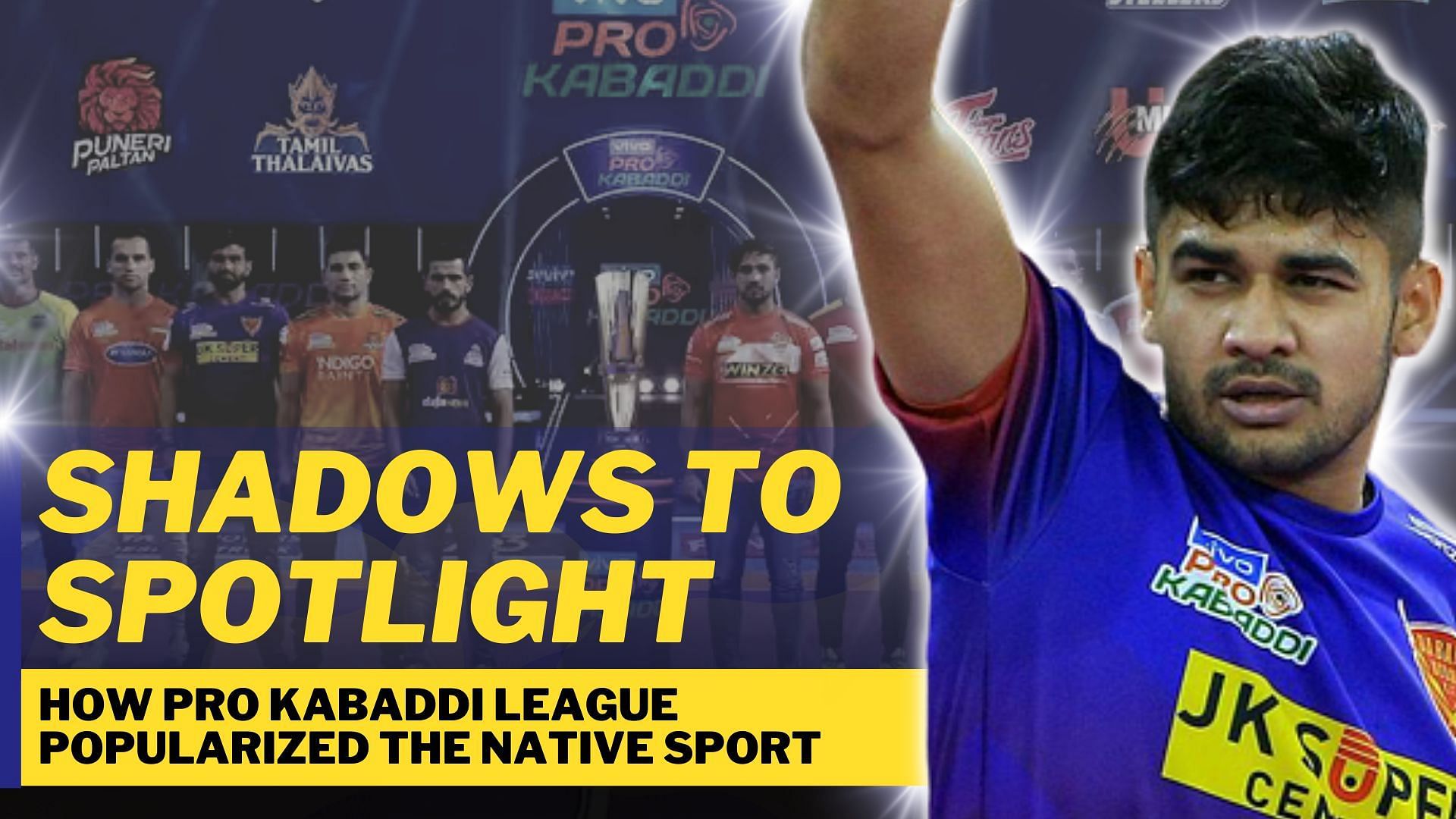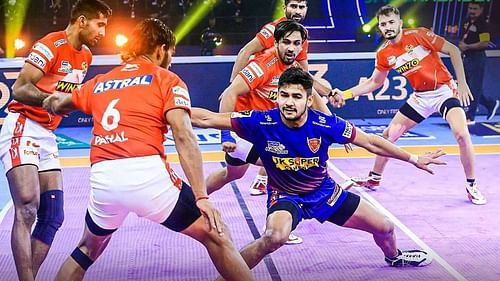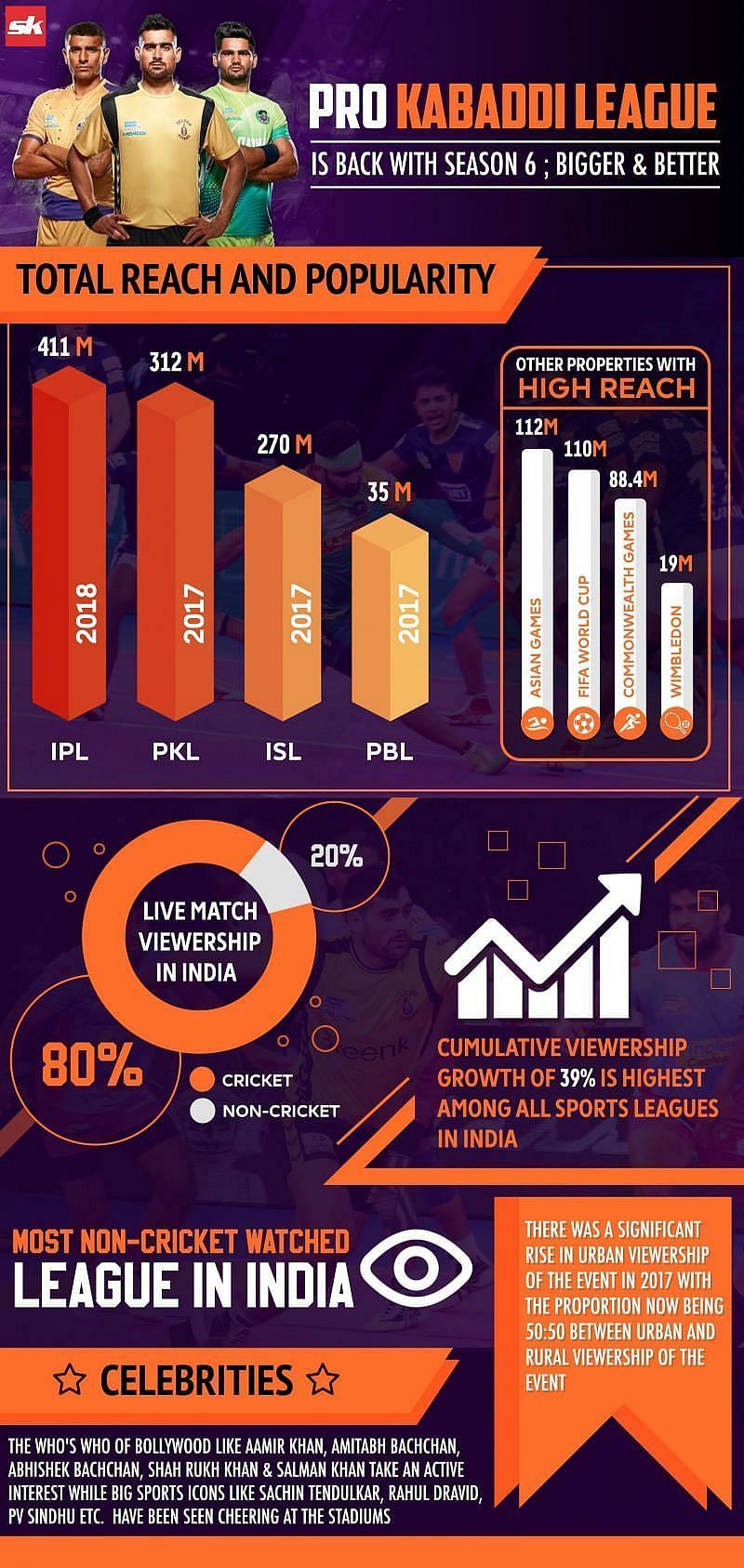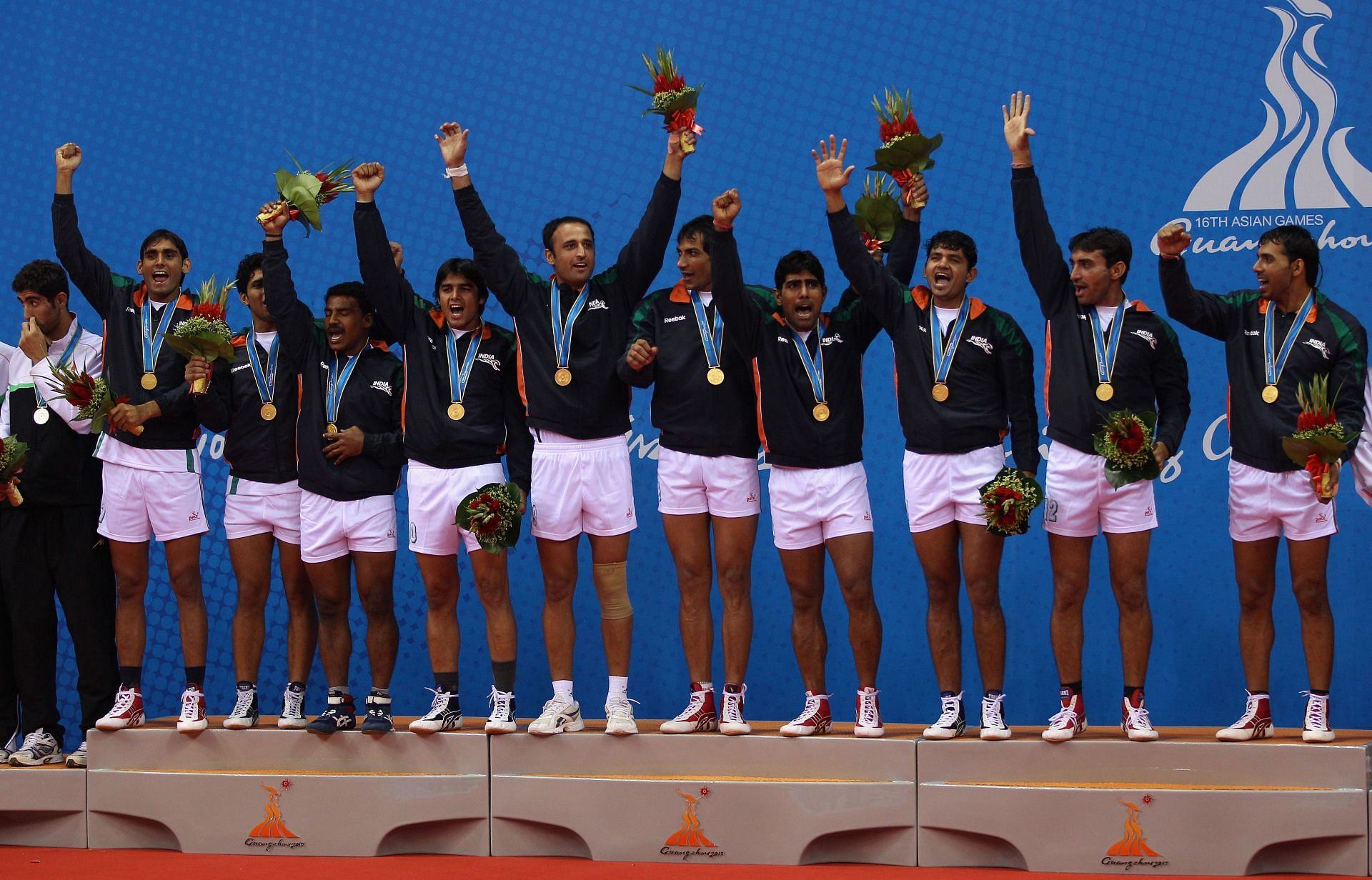
Pro Kabaddi League: From shadows to spotlight
In recent years, the Pro Kabaddi League has emerged as one of the most successful sporting ventures in India. Not only has it revolutionized the way kabaddi is played, but also transformed it into a lucrative business opportunity. The Pro Kabaddi League has thus become a significant force in the Indian sports industry.
The league has been revolutionizing the ancient sport of kabaddi and creating new opportunities for players, coaches, and businesses. In this article, we will explore how the PKL came to be and highlight the factors that contributed to its unprecedented success.
The rise of the Pro Kabaddi League

Kabaddi, a traditional Indian sport with roots dating back thousands of years, had long been overshadowed by by cricket and other popular sports. However, with an aim to revive this native game and bring it into mainstream sports culture, Mashal Sports Pvt Ltd, took on the bold venture of launching a professional kabaddi league in 2014.
It was driven by Anand Mahindra, Charu Sharma, and Rajiv Luthra, with the objective of promoting kabaddi, creating new opportunities for players and coaches, and generating revenue for investors and sponsors.
Much like cricket's Indian Premier League (IPL), PKL adopted franchise-based teams representing different cities across India. The league has 12 teams from different parts of India, and it follows a round-robin format with playoffs and a finals. This regional approach helped build a strong connection between fans and their local teams.
Since its inception, the league has revolutionized the sport of kabaddi in India and has helped to popularize it around the world. It has attracted some of the best kabaddi players from around the world, including India, Iran, and South Korea.
Understanding PKL's business model
The Pro Kabaddi League's business model is based on various revenue streams: ticket sales, broadcasting rights, and sponsorships. The league has successfully generated revenue due to its popularity and innovative approach to marketing and promoting the sport.
PKL's revenue streams - Ticket sales
The PKL generates a significant portion of its revenue from ticket sales. It has a loyal fan base that attend matches in person, and the tickets are priced affordably to attract a wide audience. The league has also introduced VIP arenas for fans who want a premium experience.
Broadcasting rights

PKL has a multi-year deal with Star Sports, one of India's leading sports broadcasters, and it has also partnered with the OTT platform, Disney+ Hotstar, a subsidiary of Star. The league's matches are broadcast in multiple languages, including Hindi, English, and regional languages, to reach a wider audience.
Sponsorships
The PKL has been successful in attracting sponsors and investors because of its popularity and innovative approach to marketing. The league has several official sponsors, including VIVO, Tata Motors, Bajaj Electricals, and Gillette. The sponsors benefit from the league's wide reach and loyal fan base, and they can promote their brands through various marketing initiatives.
Financial performance
Pro Kabaddi League's financial performance has been impressive since its inception. According to a report by KPMG, the PKL's revenue increased from INR 43.9 crores in 2014 to INR 265 crores in 2019, a CAGR of 43%. The league's profitability has also improved, with a net profit of INR 36.5 crores in 2019.
The league's success can be attributed to its innovative approach to marketing and promoting the sport. PKL has been successful in attracting sponsors and investors because of its wide reach and loyal fan base. The league has also been successful in creating new opportunities for players and coaches, which has helped to improve the quality of kabaddi in India.
Attracting and retaining sponsors, investors, and fans
The PKL has demonstrated remarkable success in its ability to attract and retain sponsors, investors, and fans through its innovative marketing strategies. Their approach has been multifaceted, offering various sponsorship packages that cater to brands seeking different levels of involvement, such as title sponsors, associate sponsors, and official partners.
These diverse sponsorship options have allowed the league to form strong and lasting partnerships with a wide range of companies. Moreover, the Pro Kabaddi League has taken decisive steps in creating compelling marketing initiatives that aim to promote the sport and captivate fans.
By adopting a dynamic and engaging approach, the league has effectively cultivated a loyal and enthusiastic fan base, further enhancing its appeal to sponsors and investors alike.
For example, they have launched a social media campaign called #LePanga, which encourages fans to support their favorite teams and players. The league has also launched a fantasy league app, which allows fans to create their own teams and compete with others.
Marketing strategies
Pro Kabaddi League's marketing strategies have been innovative and effective in promoting the sport and engaging fans. The league has utilized various marketing channels, including social media, digital marketing, and traditional advertising, to reach a wider audience.
Social media
The PKL has a strong presence on social media platforms, including Facebook, Twitter, Instagram, and YouTube. The league uses these to engage fans and promote the sport.
The social media pages feature live updates, highlights, and behind-the-scenes footage of matches. The league also encourages fans to share their experiences and opinions on social media using hashtags such as #LePanga and #IsseToughKuchNahi.
To ensure maximum engagement, the PKL has also collaborated with influencers and celebrities on various social media platforms. For instance, the league partnered with Bollywood actor Aamir Khan for promotion during the 2017 season.
Digital marketing
The PKL has also utilized digital marketing to promote the sport and engage fans. They have launched several digital campaigns, including a mobile application called Kabaddi Adda too. The league has also partnered with several brands to launch co-branded digital campaigns, such as Bajaj Electricals' #TheHuntForTheChampion.
The Pro Kabaddi League has also invested in creating engaging content for its fans, including videos, blogs, and podcasts. For example, they launched a podcast series called Beyond The Mat, which features interviews with kabaddi players and coaches.
Traditional advertising
The PKL has also utilized traditional advertising channels, such as television and print media, to reach a wider audience. The matches are broadcast on television in multiple languages, and the league has also launched print campaigns in leading newspapers and magazines.
In addition to these channels, the league has also invested in out-of-home advertising, such as billboards and bus shelters, to create visibility for the sport and its sponsors.
Impact of PKL on the sport of kabaddi
The Pro Kabaddi League (PKL) has had a significant impact on the sport of kabaddi in India and beyond, helping to popularize the sport and create new opportunities for players, coaches, and businesses.
Popularizing the sport
Since its inception in 2014, the PKL has been instrumental in the growth of kabaddi in India. It has brought the sport into the mainstream by providing a platform for players to showcase their talent and compete at a professional level. The league has also helped attract new fans, with millions of viewers tuning in to watch matches both in person and on television.

Opportunities for players and coaches
The Pro Kabaddi League has created new opportunities for kabaddi players and coaches. It has provided a platform for players to earn a living from the sport, with those at the top earning salaries of up to INR 1 crore ($121,500) per season.
The league has also provided coaching opportunities for experienced players and coaches, who are able to share their knowledge and skills with young players through training camps and clinics.
Impact on player development and training
The PKL has also had a significant impact on player development and training in India. The league has helped to identify and nurture young talent, providing them with access to top-quality coaching and training facilities.
It has also helped to create a pathway for young players to progress from the grassroots level to the professional level, with many starting their careers in the junior development program.
Contribution to the growth of the Indian sports industry
The PKL has become an integral part of the Indian sports industry, contributing to the growth of the sector in several ways. It has generated significant revenue through a variety of channels, including ticket sales, broadcasting rights, and sponsorships.
The league has also created new jobs and opportunities for individuals and businesses in the sports industry, helping to drive economic growth and development.
Conclusion
The Pro Kabaddi League has emerged as a successful and lucrative sporting venture in India, revolutionizing kabaddi and creating new opportunities for players, coaches, and businesses. The league's innovative approach to promoting the sport, along with its diverse revenue streams, has contributed to its unprecedented success.
Overall, the success of the Pro Kabaddi League highlights the importance of innovation, marketing, and creating new opportunities for players and fans in the sports industry. As the league continues to grow and evolve, it will undoubtedly continue to have a significant impact on kabaddi and the Indian sports industry.